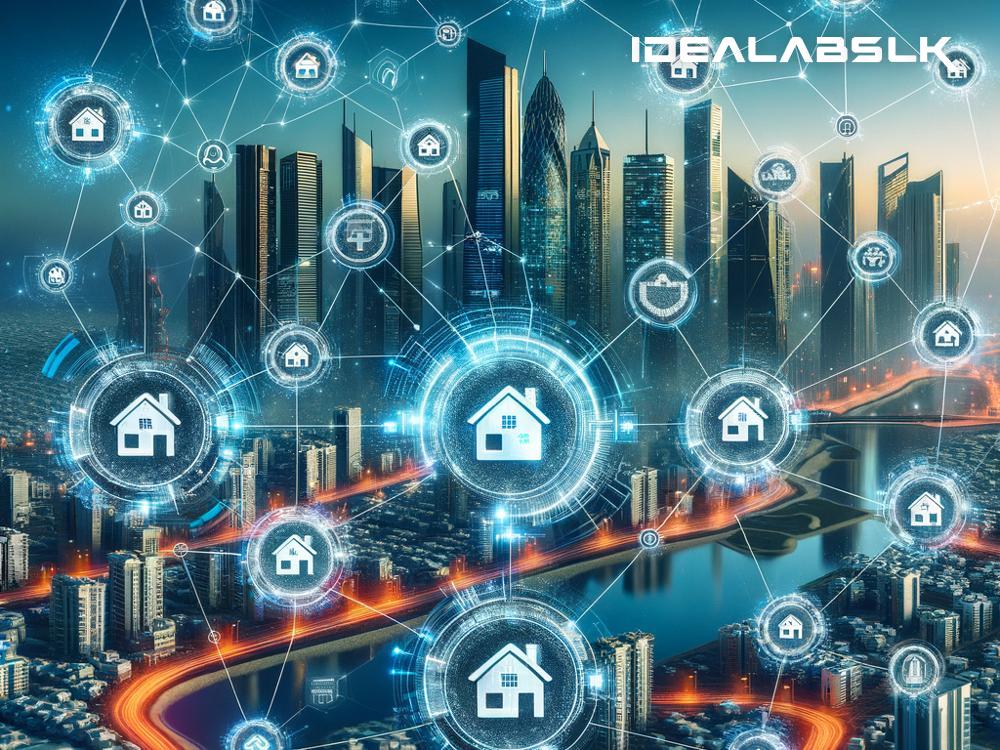Blockchain in Real Estate: How Tokenization is Simplifying Property Investment
Investing in real estate can feel like trying to unlock a door with a thousand keys. The process is complex, slow, and often requires a hefty wallet. But what if there was a key that could simplify it all? Enter the world of blockchain and its groundbreaking aspect, tokenization, which is transforming how people invest in property.
Understanding Blockchain and Tokenization
Let's break down these concepts. Imagine blockchain as a highly secure, digital ledger that records transactions across many computers. This means no single entity has control, making it transparent and nearly impossible to cheat.
Tokenization, on the other hand, is like taking a physical asset, such as a house, and breaking it down into digital shares, or "tokens," that represent ownership. These tokens can be bought and sold on the blockchain. Think of it as dividing a chocolate bar into pieces; you can buy just a part of the chocolate bar instead of the whole thing. This simplicity and flexibility are what make tokenization so appealing in the world of real estate.
The Traditional Hurdles in Real Estate Investment
Investing in real estate the traditional way is riddled with barriers. First, the cost of entry is high. Buying property typically demands a significant amount of money upfront. There are also the tedious legal processes and paperwork, which can delay transactions by weeks or even months. Furthermore, the real estate market lacks liquidity, meaning it can take a considerable amount of time to sell a property and access your invested funds.
Simplifying Investment through Tokenization
Blockchain and tokenization streamline these processes in several key ways:
-
Lowering Entry Barriers: By breaking down property ownership into smaller, more affordable tokens, more people can invest in real estate. You no longer need a fortune to start investing; you can own a piece of property by purchasing just a few tokens.
-
Speeding Up Transactions: Blockchain automates many steps in the buying and selling process through smart contracts. These are self-executing contracts with the terms of the agreement directly written into lines of code. This technology significantly reduces the need for middlemen, making transactions faster and more cost-effective.
-
Improving Liquidity: Tokenization can make real estate investments more liquid. Instead of waiting months to sell a property, investors can trade tokens on secondary markets much like stocks. This means investors can access their money faster if they need to.
-
Increasing Transparency and Security: Blockchain's transparent ledger allows for a clear view of the transaction history of a token, ensuring buyers know exactly what they're getting. It also reduces the risk of fraud and errors, as once a transaction is recorded on the blockchain, it cannot be altered.
Real-World Applications
Several platforms are already capitalizing on this technology, offering ways to invest in real estate through blockchain. For example, some companies allow you to buy tokens representing a share in residential or commercial properties, giving you a right to a portion of the rental income and possibly the appreciation of the property value. This hands-off approach is especially appealing to those who want to invest in real estate without the responsibilities of being a landlord.
Looking Ahead
As technology evolves, we can expect the real estate market to become more accessible and straightforward. The integration of blockchain and tokenization is still in its early stages, but it's showing immense promise in removing the long-standing barriers that have kept many potential investors on the sidelines. As regulations continue to develop and technology advances, this could well become a standard way of investing in property.
Final Thoughts
Investing in real estate through blockchain and tokenization could turn the daunting mountain of traditional property investment into a manageable molehill. This innovation promises to democratize real estate investing, making it easier, faster, and more accessible for everyone. With the potential to lower entry barriers, speed up transactions, and improve liquidity, the future of real estate investment is bright—and it's digital.
As we stand at the cusp of this new era, it's an exciting time to explore the opportunities that blockchain and tokenization offer. The world of real estate investment is evolving, and these technologies are leading the charge towards a more inclusive and efficient future.

